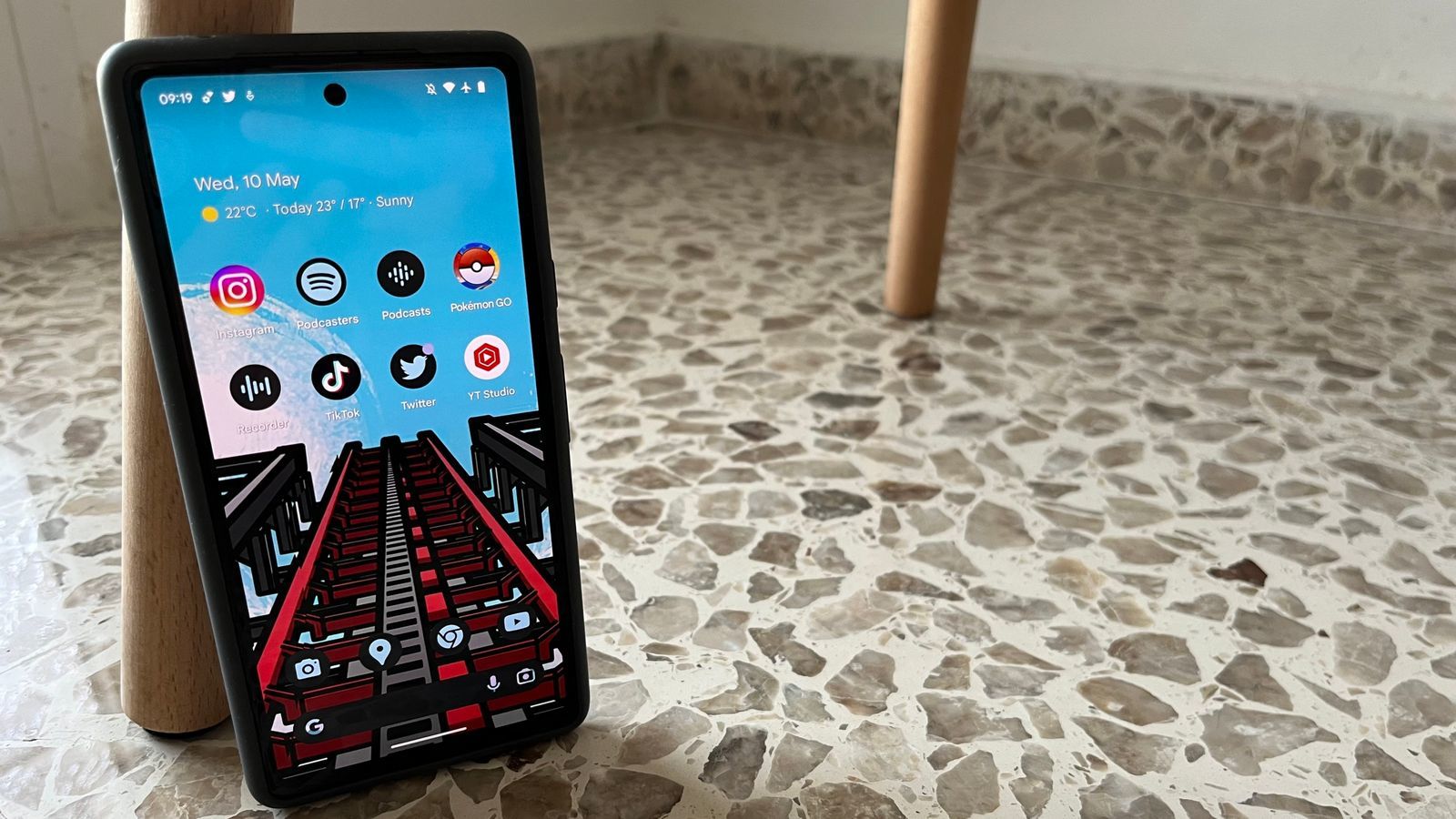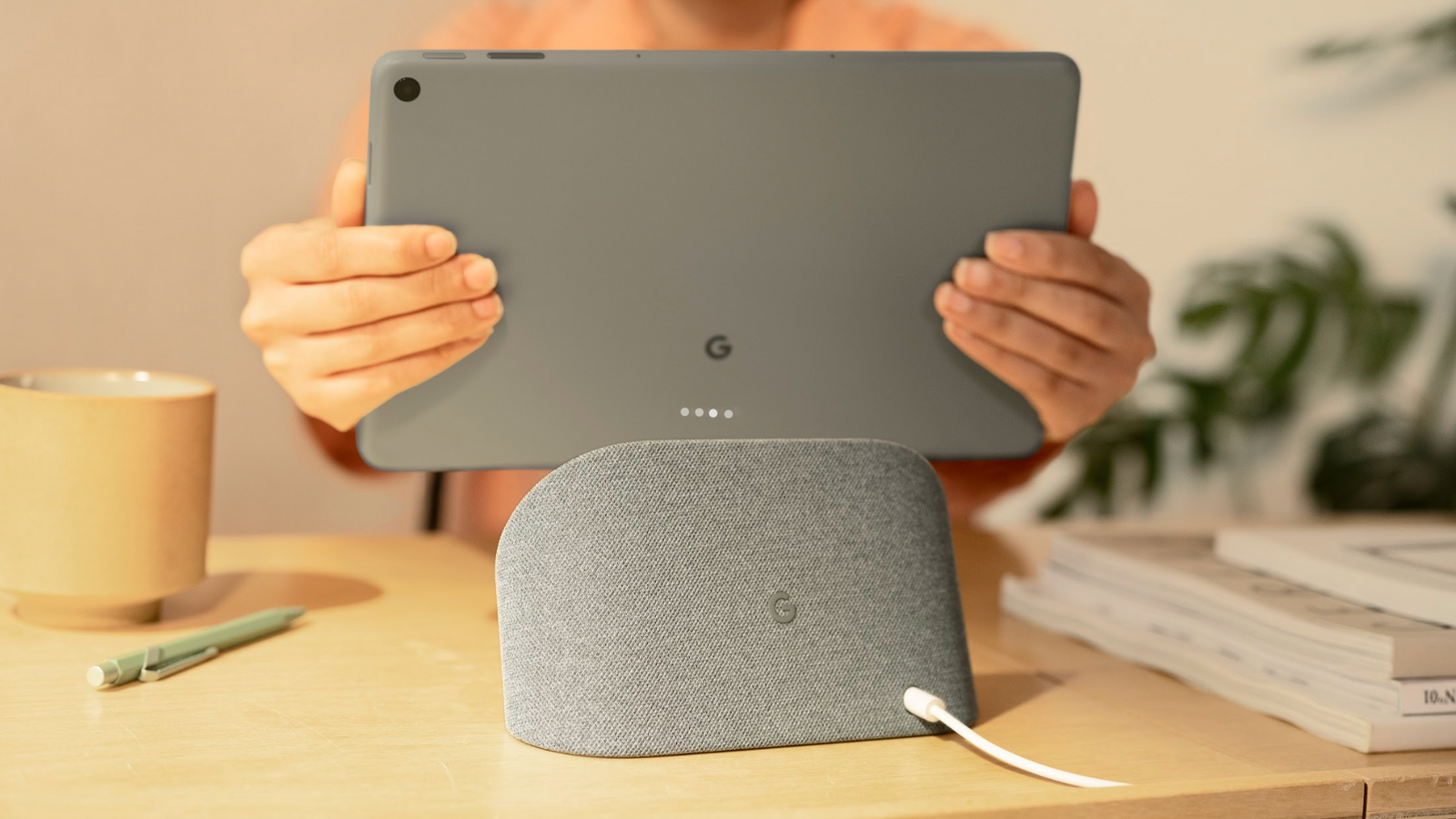
Google Pixel Fold announced with eye-watering price tag - as new budget phone and tablet also unveiled
Google has announced its first folding smartphone, with a market-leading starting price of £1,749.
That puts the Pixel Fold well ahead of the Samsung Galaxy Z Fold4, the world's most expensive foldable handset, which comes in at £1,649.
Like its competitor, Google's effort has a familiar smartphone form factor when closed but opens up into more of a tablet design with a 7.6-inch screen.
Google said the Pixel Fold would be the thinnest foldable available when it launches next month, with pre-orders beginning today following its announcement at the company's I/O event in California.
The tech giant said many components from its existing flagship, the Pixel 7 Pro, were redesigned to fit into the new device's slim design, held together with "the most durable hinge out there".
It will certainly be hoping to perform better than Samsung's first attempt at a foldable phone in 2019, which saw its release delayed after multiple reviewers managed to break it.
Like other foldables, apps operate normally on the front screen when the device is shut, are optimised for the bigger real estate when open, and can be used side-by-side; while the camera can be used hands-free in tabletop mode.
Perhaps the most innovative feature of the device won't actually make the June launch date, instead rolling out alongside the next major update to Google's Android operating system later this year.
Leveraging the firm's powerful language translation tools, an "interpreter mode" will use the phone's inner and outer screens simultaneously to translate live conversations - so that both people can see what the other is saying in their respective language.
At the other end of the affordability scale…
The Pixel Fold was one of three major devices unveiled at Google I/O.
Like last year's successful Pixel 6a and similar previous releases, the Pixel 7a takes many of the same specs as Google's top phone from the previous year and houses them in a cheaper body with a price to match.
 Google's Pixel 7a is more expensive than last year's 'budget' option
Google's Pixel 7a is more expensive than last year's 'budget' option
The Pixel 7a costs £449, compared to £599 for the standard Pixel 7 and £849 for the Pixel 7 Pro.
However, that's a smaller saving compared to last year's budget option, with the 6a having launched at £399.
For £499, you get a slightly smaller screen than the Pixel 7 (6.1 inches vs 6.3), and not quite such a premium build (more plastic, less glass), but the same Tensor G2 processor and memory for speedy performance.
The battery is a smidge larger than the standard model, while the cameras come in at 64 megapixels for the main sensor and 13 for the ultrawide.
A true rival to the iPad?
While the smartphone market has always been fiercely contested, Android tablets have struggled to make a major impact against Apple's iPad.
Google hopes to make the predictably named Pixel Tablet stand out by bundling it with a dock, turning it from a portable personal device into one for the home - a similar concept to Nintendo's Switch games console.
 Pixel Tablet comes with a dock designed for home use.
Pixel Tablet comes with a dock designed for home use.
When placed in the dock, the tablet is charged and gains more powerful speakers - turning it into a more effective music player for living rooms.
It also turns it into a dedicated smart home device for turning on lights or viewing doorbell cameras, and has a Chromecast built in for beaming videos, music, and photos from another device to its 11-inch screen.
Like the Pixel Fold and 7a, the tablet is powered by a Tensor G2 processor.
It releases on 20 June, priced £599 - and is not available without the dock.










